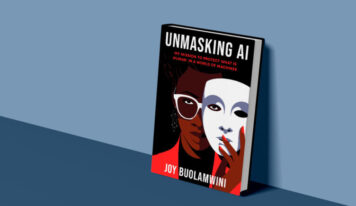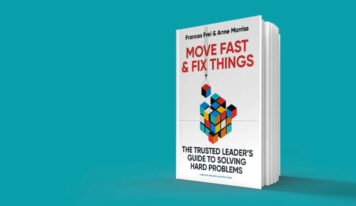Central Ideas:
1- If your posture is bad, you will feel small and incapable. If you begin to align, you can choose and embrace Being and work for its continuity and improvement.
2- Loyalty must be negotiated, fairly and honestly. Friendship is a reciprocal agreement. You are not morally obligated to help someone who is making the world a worse place.
3- Children suffer harm when those responsible for their care, afraid of any conflict or upset, dare not correct them and leave them without a direction.
4- If you leave things undefined, you will never know what is one thing or another. Everything will blend in with everything else. This makes the world too complex to cope with. Precision is a tool and a virtue. Use it.
5- For psychotherapists: try to clear your mind, put aside your own concerns to stay focused on what is best for your client, and be aware of any hints that show the client has been misunderstood.
About the author:

Jordan B. Peterson was a consultant to the UN secretary-general. He has helped his clinical patients deal with depression, obsessive-compulsive disorder, anxiety, and schizophrenia. He has served as a consultant to senior partners of major law firms. His first book, now a classic, is “Maps of Meaning: The Architecture of Belief”.
Introduction
Peterson’s book originated with a question-and-answer program on the Canadian Quora website. Questions such as this one: “What are the most valuable things that everyone should know”. Peterson’s list of rules: “Be grateful despite suffering”, “Don’t do things you hate”, “Don’t hide things in the fog” and others.
Quora readers loved it, and even his students at the University of Toronto came up to Peterson to say they had enjoyed it. What’s more, the list was viewed by more than 120,000 people. The way was open for the “12 Rules for Life”.
Happiness would be the ultimate goal of life. Only in part. Says Peterson: “In times of crisis, the inevitable suffering that life imposes can quickly make ridiculous the idea that happiness is the individual’s correct pursuit.
Instead, on a radio program, I suggested that a deeper meaning was needed. I realized that the nature of that meaning was constantly re-presented in the great stories of the past and had more to do with character development in the face of suffering than with happiness. This is part of the long history of the present work.”

Rule 1
Back erect, shoulders back
At first, Peterson introduces lobsters. They may be a good dish, but they are something else: these interesting and delicious crustaceans offer us a lot to think about. Their nervous system is relatively simple, with neurons, the magic brain cells, large and easily observable… lobsters have more in common with you than you might imagine (especially when you go “mouthy” – ha ha ha).”
Observing the nature of lobsters leads Peterson to reread the ideas of evolution that for him flow into his favorite dualism: chaos and order.
“To regard nature as purely static results in a serious error of understanding. Nature ‘selects’.
The idea of selecting remains implicitly lodged within the idea of fitness… The ‘fit’ in ‘fitness’ is thus the combination of the attribute of the organism and the demand of the environment. Now, the demand of the environment changes, so nature cannot be conceptualized only as static. Nor is nature simply dynamic. Some things change rapidly, but these things are nested within other things that change less rapidly.
For example, the leaves change faster than the tree, and the trees more than the forest. It is chaos within an order, within chaos, within a greater order. The most real order is the unchanging one, and not necessarily the order that is most observed.
Turning this to human reality, the past failures of diminishing status, as in bullying, can change. You are a loser, but you don’t have to stay that way. You can change. Circumstances change, so you can change.
Positive feedback loops, adding effect after effect, can increase unproductively and negatively, but they can also work in ways that move you forward. If your posture is bad – back bent, shoulders slumped, chest in, head down, you will feel small, defeated, and incapable; if you present yourself as defeated, people will react negatively. If you start to align yourself, they will look at you and treat you differently. Encouraged and empowered, you will be able to choose and embrace Being and work for its continuity and improvement.
“Seek your inspiration from the victorious lobster, with its 350 million years of practical wisdom. Lift your head, keep your back erect and shoulders back,” Peterson concludes.

Rule 2
Take Care of Yourself as You Would Take Care of Someone Under Your Responsibility
The scientific world of matter can be reduced somewhat to its fundamental constituent elements: molecules, atoms, and even quarks. However, the world of experience has primal constitutive as well.
These are necessary elements whose interactions define drama and fiction. One of them is chaos. Another orders. The third is the process that mediates between the two and which seems identical to what modern people call consciousness.
Chaos is the domain of ignorance itself. It is unexplored territory. Chaos is what extends, eternally and without limits, beyond the borders of all states, ideas, and disciplines. It is the foreigner, the stranger, the member of another gang, the monster under the bed.
Order, by contrast, is the exploited territory. It is the hundreds of millions of years old hierarchy of place, position, and authority. When everything is defined, we are in order.
The perception of things as tools, for example, occurs before, or during, our perception of them as objects. We see what things mean at the same rate, or faster than we see what they are.
The perception of things as entities with personalities also occurs before the perception of them as things. This is particularly true of the actions of others, of other living things, but we also see the non-living “objective world” as animate, with purpose and intention.
Jordan Peterson is an academic and clinical authority on psychiatry. From this he draws many experiences in human living such as this description: “During my clinical practice, I encourage people to give themselves and those around them credit for acting productively and with care, as well as for their genuine concern and consideration for others.
The teacher also sees the other side of the coin. All people are deeply flawed. All are destitute of the glory of God. However, if this cruel fact meant that we have no responsibility to care for ourselves as we do for others, we would all be brutally punished all the time. That would not be good, with serious consequences, obviously.
Taking care of yourself the way you would take care of someone else under your responsibility means considering what would really be good for you.
It is not “what you want.” It is also not “what would make you happy”. Giving a child a piece of candy will make him happy. But that’s not all. She needs to be educated, responsible, an awakened being, and capable of reciprocity – capable of caring for herself and others.

Rule 3
Be friends with people who want the best for you
People choose friends who are not good for other reasons too. Sometimes it’s because they want to rescue someone. This is more typical with younger people, although the impetus still exists among older people who are too cordial, have remained naive, or who are deliberately blind.
Someone may object, “Nothing fairer than to see the best in people. The supreme virtue is the desire to help.” But not all who fail are victims, and not all who are at the bottom desire to rise, although several want to and several succeed.
Imagine a person who is not doing well. She needs help. She may even want the help. But it is not easy to distinguish between someone who truly wants and needs help and someone who is just exploiting someone willing to help.
The distinction is difficult even for the people who are wanting and needing, and possibly even for the one who is exploiting. The person who tries and fails, and is forgiven, and tries and fails again, and is forgiven, is also usually the person who wants everyone to believe in the authenticity of all these attempts.
Before helping someone, you should find out why that person is in trouble.
You should not simply assume that he is a noble victim of exploitation and unjust circumstances. That is the most unlikely explanation, not the other way around. Moreover, if you buy the story that everything terrible happened out of the blue, without personal responsibility on the part of the victim, you deny this person all his ability to act in the past (and by implication, in the present and future as well). In this way, you strip him of all power.
If you have a friend whose friendship you would not recommend to your sister, father or son, why would you have such a friendship for yourself? Perhaps you will say: out of loyalty. Well, loyalty is not the same as dumbness. Loyalty must be negotiated, fairly and honestly. Friendship is a reciprocal agreement. You are not morally obliged to help someone who is making the world a worse place.
Rule 4
Compare yourself to who you were yesterday, not to who someone else is today
Start with the observation that we do indeed desire things – and even need them. It is human nature. We share the experiences of hunger, loneliness, thirst, sexual desire, aggression, fear, and pain. These things are elements of Being – primordial and axiomatic elements of Being. But we must choose and organize these primordial desires because the world is a complex and stubbornly real place.
We can’t just select one particular thing we want especially now, along with everything else we generally want, because our desires can produce a conflict with our other desires, as well as with those of people and the world.
In this way, we must become aware of our desires and articulate, prioritize and organize them in hierarchies.
Religion is about right behavior. It is about what Plato called “the Good”. There is the Enlightenment objection against religion, but it is at least a start. You can’t focus on anything if you are completely undisciplined and ignorant. You won’t know how to choose what to target, and you won’t fly in a straight line.
Therefore, it is necessary and desirable that religions have a dogmatic element.
dogmatic element. What good is there in a value system that does not provide a stable structure? What good is a value system that does not point the way to a higher order?
And how can you possibly be good if you don’t internalize that structure, not as an endpoint necessarily, but at least as a starting point? This is not to say that obedience is enough. But a person capable of obeying is at least a well-developed tool.
Only you don’t stop there. You realize that it is a mistake to focus on a better life if the price is to make someone else’s worse. So you get creative. You decide to play a harder game. You decide that you want a better life, in a way that will make your family’s life better too. Or the life of your family and your friends and the strangers around you.

Rule 5
Don’t let your children do something that makes you stop loving them
Peterson reports: a father recently talked to me about the difficulty he was having getting his son to sleep at night – a ritual that involved about 45 minutes of struggling. We did the math. Forty-five minutes a day, seven days a week. In all, 20 hours a month. How can situations like this be understood? Where is the error, in the child or in the parent?
Some locate these problems in the adults, either the parents or the wider society. There are no bad children, some think, only bad parents. When the idealized image of the immaculate child comes to mind, this notion seems to be totally justified.
The beauty, openness, joy, confidence, and capacity for love that characterize the child make it easy to assign total blame to the adults on the scene. However, such an attitude is dangerous and naively romantic. It is too one-sided in the case of parents who have been gifted with an especially difficult child. Nor is it good if all human corruption is unconditionally laid on the shoulders of society.
Peterson continues: I see parents today terrified for their children, especially since they have been considered the central agents of this hypothetical social tyranny, and at the same time are denied credit for their role as benevolent and necessary agents of discipline, order, and convention.
They inhabit, uneasily and insecurely, the penumbra cast by the all-powerful shadow of the adolescent ethos of the 1960s, a decade whose excesses led to a total disregard for adulthood, unthinking disbelief in the existence of a competent power, and an inability to distinguish between the chaos of immaturity and responsible freedom.
This has increased parental vulnerability to the short-term emotional distress of their children, while their fear of harming them has increased to a painful and counterproductive degree.
Since children, like other human beings, are not only good, they cannot be left alone, untouched by society, and blossom into perfection.
Even dogs must be socialized if they are to be members of the pack – and children are much more complex than dogs. This means that there is a much greater chance that they will stray in complex ways if they are not trained, disciplined, and properly encouraged.
Children suffer harm when those responsible for their care, afraid of any conflict or upset, no longer dare correct them and leave them without a direction.
Rule 6
Leave your house in perfect order before you criticize the world
Life is very hard indeed. We are all destined for pain and programmed for destruction. Sometimes suffering is clearly the result of personal failures, such as willful blindness, poor decision-making, or malevolence. In such cases, when it appears to be self-inflicted, it may even seem fair.
People get what they deserve, you may claim. This is a sad consolation, however, even when it is true. Sometimes, if those who are suffering would change their behavior, their lives would unfold less tragically. But human control is limited.
Ultimately, it seems, we are not the architects of our own frailty. Whose fault is it?
Alexander Sojenitsin had every reason to question the structure of existence when he was imprisoned in a Soviet concentration camp in the middle of the terrible 20th century. He had served on the Russian front lines, unprepared for the Nazi invasion.
He was arrested, beaten, and thrown into prison by his own people. Then he was stricken with cancer. He could have been resentful and bitter. His life was made miserable by both Stalin and Hitler, two of the worst tyrants in history. He witnessed the suffering and degrading and senseless death of friends and acquaintances.
However, the great writer, the profound and vivacious defender of truth, did not allow his mind to turn to revenge and destruction. During his many trials, Soljenitsin met people who behaved nobly under horrible circumstances. Finally, he wrote Gulag Archipelago, a story about the Soviet system of imprisonment in forced labor camps.
Have you tidied up your life?
Perhaps you will find that your soul, now less corrupt, is much stronger than it otherwise would be, and can withstand those remaining tragedies, necessary and minimal, and inescapable. Perhaps you will become an even more powerful force for peace and all that is good.
Rule 7
Pursue what is meaningful, not what is convenient
Objectively, this sacrifice-work is the postponement of gratification, but that is too simplistic a phrase to describe something of such deep significance. The discovery that gratification could be postponed was simultaneously the discovery of
time, and thereby of causality (at least of the causal force of voluntary human action).
We learned that behaving correctly now in the present – regulating our impulses, considering the suffering of others – can bring rewards in the future, in a time and place that do not yet exist.
We began to inhibit, control, and organize our immediate impulses so that we could stop influencing other people and our future selves.
Doing this was the same as organizing society: The discovery of the causal relationship between our efforts today and the quality of tomorrow motivated social contract – the organization that allows today’s work to be safely stored.
Peterson draws fundamental moral conclusions:
“Aim high. Pay attention. Fix what you can fix. Don’t be arrogant with your own knowledge. Strive to be humble, because totalitarian pride manifests itself in intolerance, oppression, torture, and death. Consider the bloodthirsty part of your own spirit before you dare to accuse others and try to fix the structure of the world. Maybe the fault is not in the world. Maybe it is in you. And above all, don’t lie. Lies lead to hell. It was the big and small lies of the Nazi and Communist states that produced the death of millions of people. Make it an axiom: to the best of my ability I will act in a way that relieves unnecessary pain and suffering.”
Rule 8
Tell the truth. Or at least don’t lie
Peterson here, as in many other steps, draws on personal experiences. This is what occurred when he gave a lecture before beginning his clinical studies.
“I realized very clearly that almost everything I was saying was not true. I had reasons for saying those things: I wanted to win the debates, gain status, impress people, and get what I wanted. I was using language to force the world to give me what I thought was necessary. Only in this way I was false. When I realized this, I started a practice of just saying things, which the inner voice would not object to. I began to practice telling the truth.”
With this attitude, he crunched the subject, verifying and exposing interesting everyday facts.
We can use words to manipulate the world into giving us what we want.
That is the meaning of “politicking. It is distorting reality. It is the specialty of marketers, salesmen, and advertisers. It is the discourse, which people engage in when they try to influence and manipulate others.
It is what college students do when they write a paper to please the professor, instead of articulating and clarifying their own ideas. It’s what everyone does when they want something and decides to fake themselves to please and flatter. It is plotting and creating slogans and propaganda.
Making immediate plans, like going to the beaches of Mexico, which are closer to the Canadians, is not exactly a long-term plan. You can spend a few weeks on the beach, enjoying the sun and the margaritas (drink).
This is simply not a sustainable approach for the future. This kind of oversimplification and misrepresentation is particularly typical of ideologues. They love a single axiom: government is bad, capitalism is bad. Then they filter and select their experiences and insist even more restrictively that everything can be explained through the axiom.
They narcissistically believe that under the tutelage of all this bad theory the world could be fixed, they would just have to take control. Peterson’s conclusion: “The totalitarian denies the individual’s need to take ultimate responsibility for Being.”
Rule 9
Assume that the person you are talking to may know something you don’t
Psychotherapy is an authentic conversation. And authentic conversation requires exploration, articulation, and strategy. When you engage in authentic conversation, you are listening and talking-but mostly listening. Listening and paying attention.
It’s amazing what people tell you when you are willing to listen.
Sometimes, when you really listen, people will even tell you what is wrong with them. Sometimes they even tell us how they intend to fix it. And sometimes it helps them to correct something wrong with themselves.
On one occasion, Peterson, as a clinician, received a client who was not sure whether she had been raped or not. For her it would have been five times. With analysis, not much progress was being made. At about the same time that the clinician was seeing this client, the media was buzzing with stories of recovered memories – especially of sexual abuse.
The discussion quickly ignited: were these memories authentic accounts of past traumas? Or were they post-event constructs, imagined as a consequence of intentional or unintentional pressure applied by reckless therapists, to which clinical patients too anxious to find a simple cause for all these problems desperately cling?
“However, I understood, much more clearly and accurately, how easy it will be to instill memories into my client’s mental territory the moment she revealed to me her uncertainty about her sexual experiences,” Peterson concludes.
Sexual abuse of children is regrettably common. However it is not as common as poorly trained psychotherapists think, and it does not always result in terribly disturbed adults. People vary in their resilience. An event that will devastate one person can be easily overcome by another.
But therapists with a biased and poor knowledge of Freud often axiomatically assume that an adult who is disturbed in his or her life will be resilient. “I try to clear my mind and put my own worries aside. That way I am focusing on what is best for my clients while being alert for any hints that show me I don’t quite understand what that best means,” says Peterson.
Rule 10
Be precise in what you say
When we see the world, we perceive just enough for our plans and actions to work and for us to cope with the situation. Thus, the place where we make ourselves present is “enough”. This is a functional, unconscious, and radical simplification of the world – and it is almost impossible not to confuse this view with the world itself.
But the objects we see are not simply in the world, there for our simple and direct perception. They exist in a mutual, complex, and multifunctional relationship, and not as independent, bound, and sharply separated objects.
We do not perceive objects, but rather their utility, and in doing so we make them simple enough for satisfactory understanding. This is why we must be precise in our purpose. Without this precision, we drown in the complexity of the world, Peterson teaches.
If you identify things with attention and careful language, you present them as workable, disciplined objects, distinguishing them from their almost universal hidden interconnectedness.
You simplify them. You make them specific and useful, and you reduce their complexity. You make it possible to live with and use them without succumbing to so much complexity, along with the uncertainty and anxiety that accompanies them.
If you leave things undefined, you will never know what is one thing or another. Everything will blend in with everything else. This makes the world too complex to cope with. Precision is a tool and a virtue. Use it.

Rule 11
Don’t disturb children when they are skateboarding
Who hasn’t seen a bunch of kids, usually boys on skateboards, doing daring, dangerous, and sometimes fall-causing stunts? There is immediately a group of “let it go” people: it is too dangerous, accidents must be avoided. But on closer examination, the gang keeps going, without giving up, even with some injuries.
People, including children (who are also people, after all), do not seek to minimize risks. They optimize them. They drive, walk, love, and play in order to achieve what they want, but at the same time, they challenge themselves a little, too, so that they continue to develop.
Peterson addresses the attempt to make boys equal to girls as if gender characteristics were social constructs. Girls should become more aggressive and boys, more sheepish. And so on.
The fact that the world would be a much better place if boys were socialized like girls have become the doctrine of a certain kind of social constructivist theory. Those who advocate these theories assume, first, that aggressiveness is a learned behavior, and thus could simply not be taught, and second (using a specific example) that “boys” should be socialized the way girls have been and should be encouraged to develop socially positive qualities, such as politeness, emotional sensitivity, care and attention, appreciation for aesthetics, and cooperation.
In the opinion of these thinkers, aggression will only be reduced when adolescent and young males “adopt the same standards of behavior traditionally encouraged for women.”
There are so many things wrong with this idea that it is hard to know where to begin, says Peterson.
First, it is not true that aggressiveness is simply learned. Aggressiveness has been around forever.
Within that logic, it seems that a subset of two-year-old boys (about 5%) are quite aggressive by temperament. They take other children’s toys, kick, bite, and hit. However, most are effectively socialized by age four. This, however, is not because they have been encouraged to act like little girls.
Instead, they are taught or learned in early childhood to integrate their aggressive tendencies into more sophisticated behavioral routines. In other words, don’t bother children when they are skateboarding.

Rule 12
Pet a cat when you meet one on the street
Peterson begins the chapter by saying that he likes dogs, like his own, which is Eskimo named Sikko. He did this so as not to offend dog owners, in the face of the title adulating cats. He says, “I am describing my dog rather than writing directly about cats because I don’t want to conflict with a phenomenon known as ‘social identity,’ discovered by psychologist Henri Taifel.”
Taifel’s studies demonstrated two things: first, that people are social; second, that people are antisocial. People are social because they like members of their own group. And they are antisocial because they dislike others.
Why exactly has been the subject of an ongoing debate? It may be a solution to a complex optimization problem. Such problems arise, for example, because of the antipathy between cooperation and competition, both of which are socially and psychologically desirable.
Cooperation is for safety, security, and companionship. Competition is for personal growth and status.
In this step, Peterson probes the sufferings and limitations of Being as the mismatches between cooperation and competition. The idea that life is suffering is a principle, in one form or another, in all prevailing religious doctrines. Buddhists declare it openly. Christians represent it with the cross. Jews pay homage to suffer endured over the centuries. According to these faiths, human beings are inherently fragile.
Life has its limits and sufferings. Take the time to think about them and plan, don’t be at the mercy of events. If you spend all your time thinking about them, the house will fall down, you will prostrate yourself.
And maybe when you are walking along with your head full, a kitten will appear, and if you pay attention to it, you will then have a reminder for just 15 seconds that the wonder of Being can compensate for the suffering that accompanies it inseparably.
Stroke a cat if you come across one on the street.
FACTSHEET:

Title: 12 Rules for Life: an antidote to chaos
Author: Jordan B. Peterson
Review: Rogério H. Jönck
Images: Reproduction and Unsplash
![[Experience Club] US [Experience Club] US](https://experienceclubus.com/wp-content/uploads/2021/03/laksdh.png)










![[Experience Club] US [Experience Club] US](https://experienceclubus.com/wp-content/uploads/2021/03/logos_EXP_US-3.png)






![[EXP no SXSW 2024] Rohit Bhargava: como o pensamento não-óbvio pode melhorar o mundo](https://experienceclubus.com/wp-content/uploads/2024/03/rohit-356x206.jpg)
